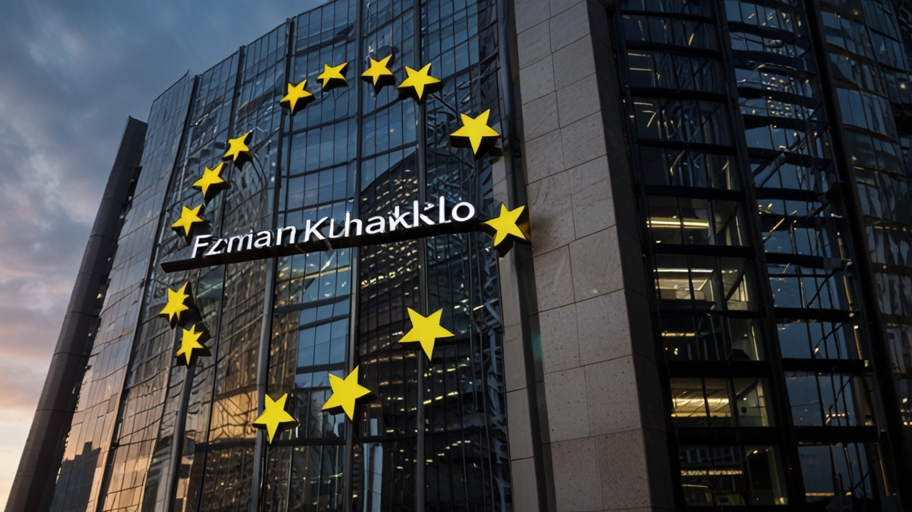European financial markets continue to sail through choppy waters while banking consolidation becomes increasingly popular due to the specter of brewing trade wars. The plan of a restructuring project in the Italian banking sector, which, some say, is one of the few left in Turkey, Italy, and some other countries of Europe untouched ovens, occurred last week.
The rescript of the Italian authorities confirmed, a few days ago, the first and largest project of consolidation that will define the Italian financial industry in the last few years. A new offer is being planned by the supervisory body as it is responsible for the period from the end of April until June.
Hence, this would be the period of transfer of rights to receive shares which are newly issued together with dividend rights of the same class. This is an example of an unexpected acquisition of a majority interest and also one of the transitional changes in the European banking industry.
From the outset, when it was announced, the target bank expressed doubts that the approach had fully captured the current company’s profits and the potential for its future growth. Nevertheless, the fact that the regulator has approved the merger indicates that the process is still ongoing and that the risk of further industry consolidation is quite significant.
Moreover, European stock markets are the main culprits in the wave of the ongoing market crash in the world. The pan-European index fell by 0.5% in the morning dealings because the traders were still not rid of the fear of the US raising taxes.
Due to the so-called “Liberation Day” and other factors, the mood in the market is somewhat gloomy. The time of the announcement dubs the strategy, which is expected to start to operate from tonight immediately after the announcement, however, the strategy has not been disclosed whereas it is still in process.
European markets this week have been in a bearish mode, with the major indices like FTSE in the UK, DAX in Germany, CAC in France, and FTSE MIB in Italy all going lower. This descent is a clear signal that all international investors have been very anxious due to many new trade measures that are likely to be taken.
the lack of information on the extent and character of tariffs is the main reason for a decline in the market mood. The STOXX still managed to drop below a level that was seen a couple of months ago, notching a figure of somewhere around 4.6% down from March, as traders continue speculating the economic consequences.
The commodity markets have also evidenced a high sensitivity to the situation, as Brent crude oil fell to $74 a barrel, and WTI crude hil ed to 70 a dollar. These changes suggest that there is some uneasiness about the global economy and volume of world trade.
There was a little reaction in the bond market, with the yield on the German ten-year treasury falling a tad. The fall in Treasury yields shows that although generally uncertain, investors are now preferring U.S. debt over German debt as a safe haven asset.
However, not notwithstanding one can see that not all sectors are in the red. Stock price gurus report that one of the marine service provider’s shares soared by more than thirty two percent due to one of the largest holdings’ cash acquisition.
Such a big increase in the price of company shares shows that young companies have a greater inclination to take over the older ones, and this trend gets noticed by the market participants who increase their investment in such small companies.
They are of the opinion that tensions have grown and will remain that way for the rest of the year. Some experts liken the current situation and aspects of earlier economic growth cycles where the disruption of trade at first caused a change in the stock market tendency in the market, but eventually the local banks had no choice but to relax their monetary policy.
By certain authorities, this method of utilizing economic pressure to make the central bank implement monetary policy is seen as a dangerous move. If the situation of persistent inflation in numerous countries holds, the additional sources of upward pressure on the prices through the tariffs could create even more problems for the policymakers at the central bank.
A possible scenario of the US budget deficit getting bigger is during the period of the trade war with China, which would, in turn, be caused by economic downturn if the conflict continues. Also, this situation not only brings new concerns in the bond market but the ripple effect may also reach European bond yields and currency valuations.
The umpteenth doge is used to confer the title of doge. The ambiguous tone of the doge speaks to the lack of concrete knowledge the character himself has about the topic. In the current era of internet jokes and memes, the word doge refers to a Shiba Inu breed of dog whose face is used in the meme.
The yoke has sworn to take two other yokes which should be as grateful to the one who were removed as now they are. Julius Caesar and the yoke were not one hundred percent sure which does the present and which the new yoke represents since they were sworn together even when joined by a new one.
